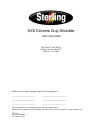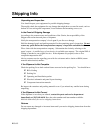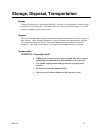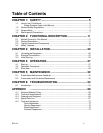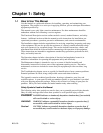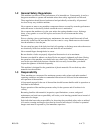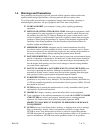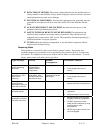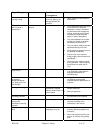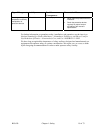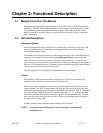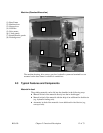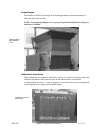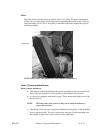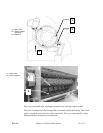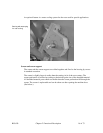BJ5-620 Chapter 1: Safety 6 of 73
1-2 General Safety Regulations
This machine uses knives for the performance of its intended use. Consequently, it can be a
dangerous machine to operate and maintain unless these safety regulations are followed.
These regulations should be read, understood and periodically reviewed by all personnel
involved in any way with this machine.
Never operate or remove any machine components that are secured by wrench-type fasteners
unless the motor is electrically locked out and the rotor is motionless.
Never operate the machine or jog the rotor unless the cutting chamber covers, discharge
chute, or any guards or covers are in place and secure. Do not circumvent the safety
interlocks.
Prior to clearing a jam or performing any maintenance, the motor should be turned off and
electrically locked out. Be sure that the rotor has come to a stop. Hands must not be inserted
into the machine to clear the jam.
Do not extend any part of the body into feed roll openings or discharge area unless the motors
are electrically locked out and the rotor and feed rolls are motionless.
Never extend fingers through holes in screen.
Be sure that the v-belts are properly aligned and that tension is at its maximum.
Extreme care should be taken to see that all bolts are properly tightened at all times. During
the operation of the machine, rotor knife bolts may come loose. Although fine threads are
used on the rotor knife bolts because vibration does not easily loosen them, you should
inspect the tightness of the bolts frequently.
This machine is designed for the granulation of plastic materials. Do not feed any other
materials into the machine.
1-3 Responsibility
These machines are constructed for maximum operator safety when used under standard
operating conditions and when recommended instructions are followed in the maintenance
and operation of the machine.
All personnel engaged in the use of the machine should become familiar with its operation as
described in this manual.
Proper operation of the machine promotes safety for the operator and all workers in its
vicinity.
Becoming familiar with materials, inspection, speed limitations, screens, and guard
maintenance and total user responsibility will assist you in learning potential areas in need of
observation for danger.
Each individual must take responsibility for observing the prescribed safety rules as outlined.
All caution, warning and danger signs must be observed and obeyed. All actual or potential
danger areas must be reported to your immediate supervisor.



